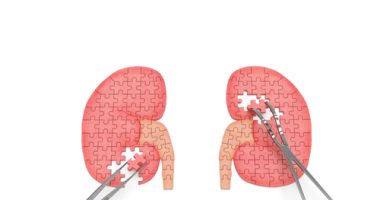Reata Names Marketing Chief, Continues Recruiting Phase 2/3 Trial Participants

Reata Pharmaceuticals has named a new marketing chief while continuing to recruit participants for a Phase 2/3 clinical trial evaluating bardoxolone methyl for those with chronic kidney disease (CKD) stemming from Alport syndrome.
David Chapman becomes Reata’s vice president of marketing after more than 25 years of biopharmaceutical sales, marketing and market-access experience. He worked at Boehringer Ingelheim and Pfizer for a decade before joining Reata.
Chapman led Boehringer Ingelheim’s global market-access efforts on a range of therapies. One was an interferon-free treatment for hepatitis C.
“We are pleased to welcome David to the role of Vice President, Marketing,” Dawn Bir, Reata’s chief commercial officer, said in a press release. “David brings a wealth of both strategic and tactical experience in both marketing and market access, which are critical areas to the commercial success of Reata. He is ideally suited to help lead the commercial development of our brands and important collaborations with key stakeholders.”
Reata continues to develop bardoxolone methyl, one of its most advanced therapy candidates. Patient enrollment is still under way for its two-part CARDINAL (NCT03019185) trial. That study will assess the safety, tolerability and effectiveness of oral bardoxolone methyl in slowing, stopping or reversing kidney-function decline in Alport patients.
Bardoxolone methyl is an antioxidant inflammation modulator created to activate Nrf2, a transcription factor that restores mitochondrial function, reduces oxidative stress and resolves inflammation. Mitochondria are the cells’ energy producers. Oxidative stress is an imbalance between the body’s production of free radicals and its ability to counter their harmful effects.
Reata is seeking 210 Alport patients for the trial. The Phase 2 portion of the study is an open-label– or no placebo group — assessment of escalating doses of up to either 20 mg or 30 mg of bardoxolone methyl administered once a day. The Phase 3 portion is a double-blind, randomized, placebo-controlled assessment of 180 patients who receive either bardoxolone methyl or a placebo.
To be considered, patients must be between 12 and 60 years old and have an Alport syndrome diagnosis from genetic testing or a histologic assessment. They also must have estimated glomerular filtration rate (eGFR) values between 30 and 90 mL/min/1.73 m2. EGFR measures decline in kidney function.
In addition, participants must have an albumin to creatinine ratio equal to or less than 3,500 mg/g and be willing to comply with scheduled visits, the treatment plan, lab tests and other procedures.
Several trial sites in the United States, Canada, Europe and Australia are enrolling participants. In the United States, the clinical site locations will be in California, Colorado, Florida, Idaho, Massachusetts, New York, South Carolina and Texas.







Comments